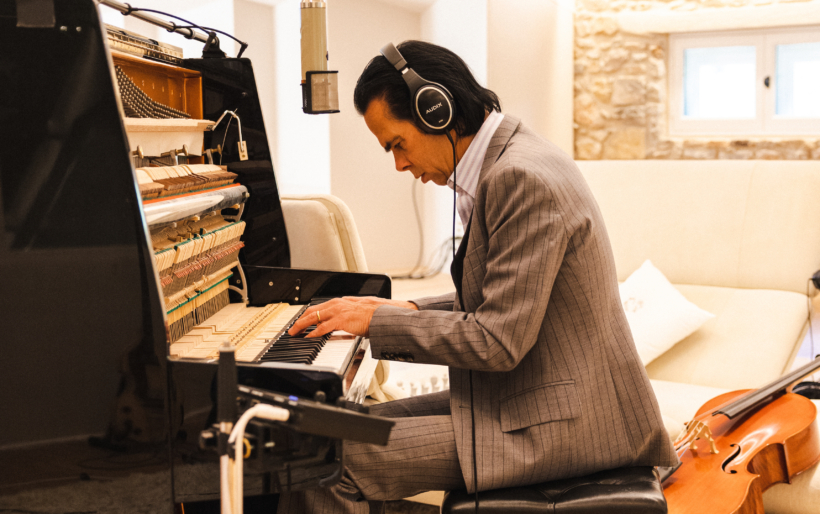For Nick Cave, it took enduring devastation to embrace true joy
In this session, Nick Cave joins us to talk about making Wild God; about life and death; fear and joy; and about frogs!

Nick Cave | photo by Megan Cullen
- Wild God
- Song of the Lake
- Frogs
- Joy
- Conversion
Nick Cave‘s songwriting has always had a preoccupation with death. From the violence in the music he made in his early Melbourne days with The Birthday Party to the grisly murder ballads that made him a breakout star stateside in the mid-’90s.
More recently, death has appeared in a more literal and personal way. Skeleton Tree and Ghosteen saw Cave grapple with the grief of losing not one but two of his sons.
Yet, throughout his work, there has always been a thread of light. A Nick Cave show can feel like a sermon. They’re complete with gospel singers, and the audience plays the part of worshippers, in a way — their hands outstretched, looking to be blessed by this tall, wiry figure in his sharp black suit.
On his new album with his band The Bad Seeds, called Wild God, it’s that light that finally shines through. On Wild God, death is still present, but instead of grief shrouding the world with darkness, it illuminates life. In this session, Nick Cave joins us to talk about making Wild God; about life and death; fear and joy; and about frogs!
Interview Highlights
On getting started on a new project
“The way I do it is I set a date, and then I just go to work. I haven’t thought about a record for two or three years. I haven’t thought about any lyrics. I don’t have groovy titles written down in a notebook or anything.
“I just hate songwriting. I hate lyric writing. Lyric writing is the problem. I go about trying to create some songs on my own, sitting there, getting up at 9 o’clock in the morning and finishing about 5:30. This takes a few months. It’s a sort of weirdly dark, self-reflective, anxiety-ridden time. I’m not that pleasant to be around…
“Once I enter the studio and once I’m with my musicians and with the Bad Seeds, that whole thing changes into something that’s just pure pleasure.”
On “Frogs”
“There’s a sort of earned pleasure to it or joy to it. It’s not, like, a happy record. It’s a joyful record, and I think the idea of joy is that it sort of leaps out of an understanding of the world — the suffering, shall we say, of things. It’s a difference between that and a happy record…
“There’s a song called ‘Frogs’ on [the album], which I really love this song. It has these lines in it. People are walking through the rain, and it talks about frogs in the gutters leaping to God, leaping to love, amazed by pain and amazed by joy … It was that little, ecstatic leap of the frog that seems to sum up the feel of the whole record to me. It’s a sort of beautiful, spiritual lift that leaps and retracts.”
On finding joy after grief
“Joy comes into play as a way of being — as a form of experience — that I think comes after understanding our vulnerable nature. It’s an earned emotion coming out of an understanding of our precarious nature — unlike happiness; happiness is a different thing altogether.
“I mean, I’ve been happy throughout my life in various ways, but it really took the devastation to understand and accept the possibility of a kind of joyful relationship with the world … When the sort of trauma first happens, it’s not something you can ever imagine to be the case, but it is true. Grief paves the way for meaning. There’s a sort of expansion of the heart that allows these moments of joy to become a kind of part of your life.”
This episode of World Cafe was produced and edited by Kimberly Junod. The web story was created by Miguel Perez. Our engineer is Chris Williams. Our programming and booking coordinator is Chelsea Johnson and our line producer is Will Loftus.